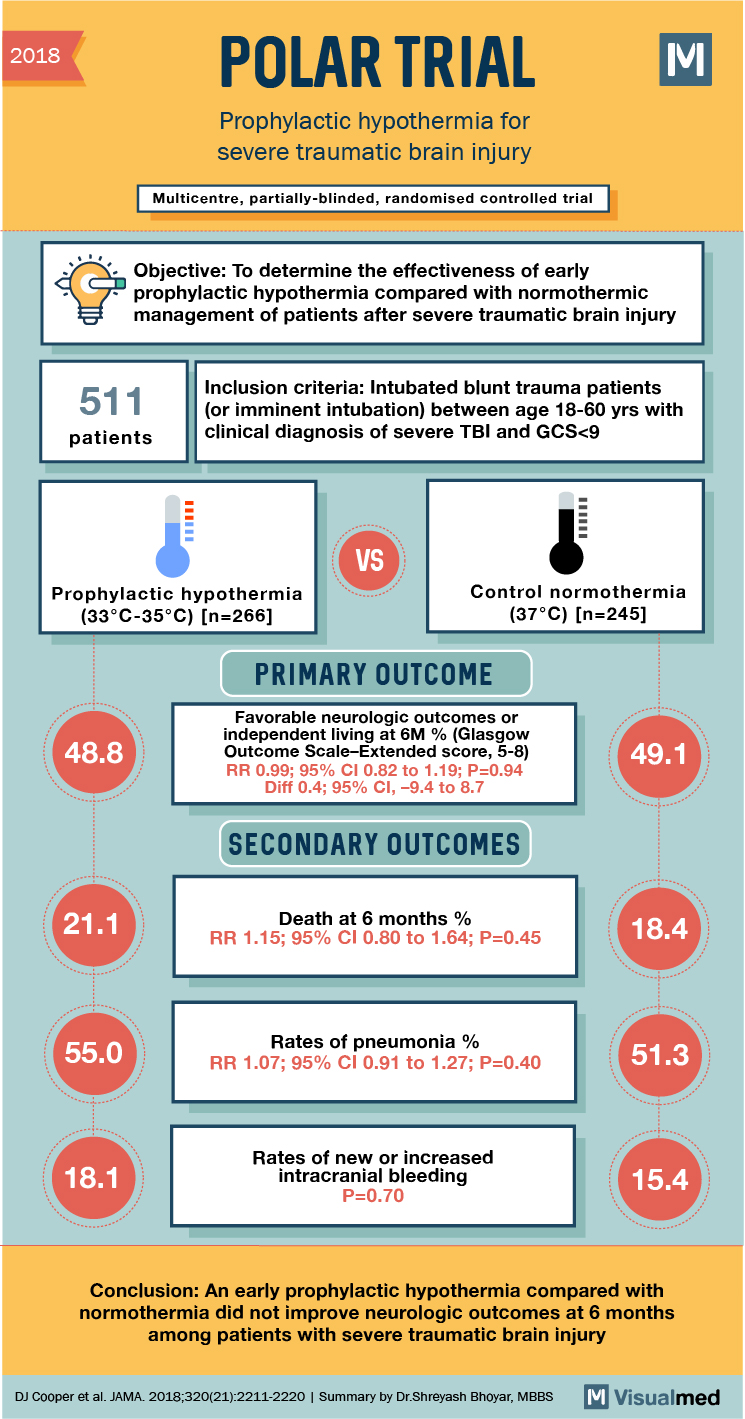
2018 POLAR TRIAL Prophylactic hypothermia for severe traumatic brain injury Multicentre, partially-blinded, randomised controlled trial Objective: To determine the effectiveness of early prophylactic hypothermia compared with normothermic management of patients after severe traumatic brain injury 511 patients Inclusion criteria: Intubated blunt trauma patients (or imminent intubation) between age 18-60 yrs with clinical diagnosis of severe TBI and GCS<9 VS Prophylactic hypothermia (33°C-35°C) (n=266] Control normothermia (37°C) (n=245] PRIMARY OUTCOME 48.8 Favorable neurologic outcomes or independent living at 6M % (Glasgow Outcome Scale-Extended score, 5-8) RR 0.99; 95% CI 0.82 to 1.19; P=0.94 Diff 0.4; 95% CI, -9.4 to 8.7 49.1 SECONDARY OUTCOMES 21.1 Death at 6 months % RR 1.15; 95% CI 0.80 to 1.64; P=0.45 18.4 55.0 Rates of pneumonia % RR 1.07; 95% CI 0.91 to 1.27; P=0.40 51.3 18.1 Rates of new or increased intracranial bleeding P=0.70 15.4 Conclusion: An early prophylactic hypothermia compared with normothermia did not improve neurologic outcomes at 6 months among patients with severe traumatic brain injury DJ Cooper et al. JAMA. 2018;320(21):2211-2220